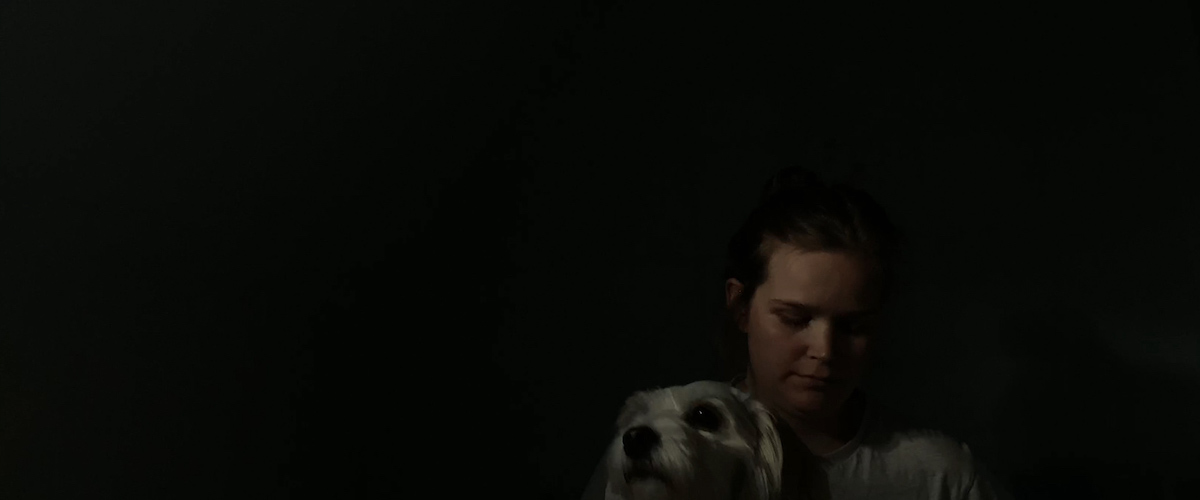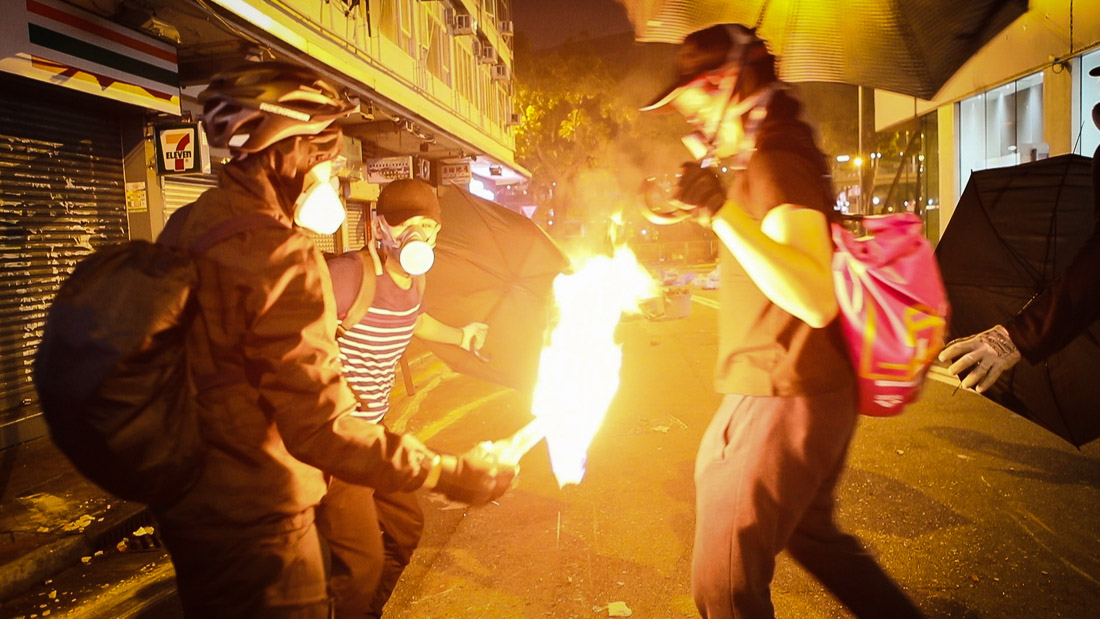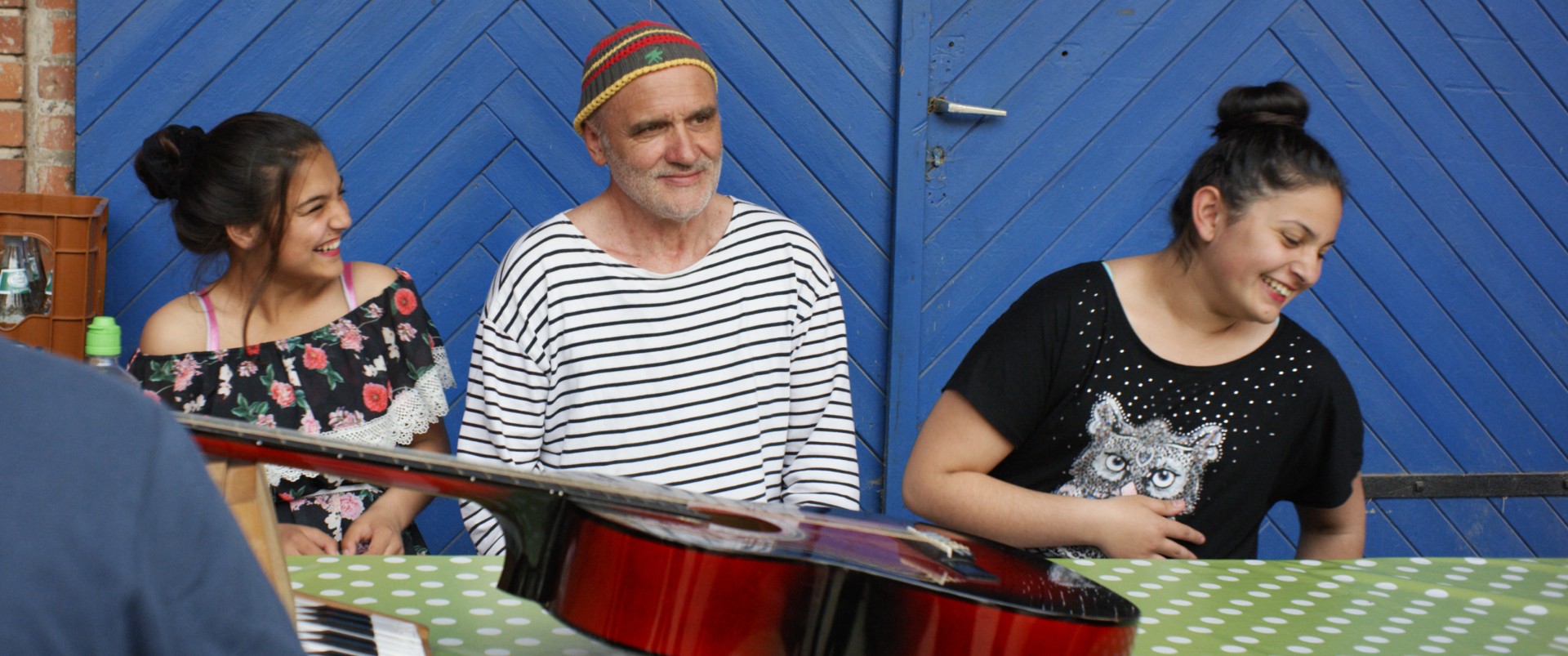Erēmīta (Anthologies)
(USA/France/Italy/Argentina, 58 min.)
Dir. Alexis Zabé, Ashley Connor, Antoine Héberlé, Sam Abbas, Soledad Rodríguez, Stefano Falivene
If, as Godard once said, all one needs to make a movie is a girl and a gun, then COVID-19 says that all one needs to make a film is a camera phone and some time to kill. One year into the monotonous stretch of self-isolation and social distancing, there is no shortage of COVID movies. Nearly everyone is making one, either by circumstance or by design. The tropes are already familiar: someone in a lonely apartment looks out a window, someone cries outside a long-term care home. A cityscape looks eerily barren or a group of hurried first responders appears clad in PPE. However, the anthology series Erēmīta (Anthologies) dispenses with many of the now-familiar COVID-film staples. It captures the daily déjà vu of quarantine life through new perspectives.
Curated by Sam Abbas, Erēmīta features a handful of shorts made by various esteemed cinematographers. The task is simple: using only the built-in cameras of their phones and a budget of zero dollars, the cinematographers devised portraits from the early days of lockdown in March 2020. The results are visually arresting, if narratively lacking. The anthology might be more effective as a multi-screen installation that one can drift in an out of with the flow of each film. Each one ranges drastically in pace, mood, tone, and style. Abbas’s curation weaves Friedrich Nietzsche’s Thus Spoke Zarathustra as a thematic through-line. Impressions of hermitic behaviour intellectualise the unnatural character of this year of isolation for social humans.
The shorts are a mixed bag that range from the avant-garde to amateur hour. A five-minute interlude features jazz music and a single static shot of rumbled bedsheets. “The Eagle and the Snake” by Soledad Rodríguez (The Black Frost) offers provocative images of animals observed in extreme close-up. Ashley O’Connor (Madeline’s Madeline) delivers a fragmented portrait of bath time. Stefano Falivene (Pasolini) captures a rare sight in Rome: the Coliseum with nary a tourist wandering around. Antoine Hébérle (Oblivion Verses) lets some sad souls bake a cake. There’s a weird interval between the final segments, moreover, that sees a man struggle to shave due to his face covering and finds himself alarmed by his masked wife in bed. Both images provide an oddly inappropriate anti-masking sentiment between stories of coronavirus malaise.
One’s fatigue with quarantine life, similarly, will likely grow while watching the shorts. This sense of pointlessness almost inevitably pervades stories produced and consumed during the pandemic. Watching other people speak with colleagues over Zoom is an acquired taste, especially these days. Observing the boredom of others doesn’t create a sense of togetherness
The images themselves are mostly arresting, but the segments are stark reminders that context doesn’t necessarily equate content. The absence of story in each film is striking. More often than not, Erēmīta amounts to empty navel-gazing images shot with good intentions. These sequences nevertheless offer material from the pandemic that might be more valuable for future use.
Erēmīta includes one sequence, however, that can stand on its own. The prize piece is “Shelter in Place” by Alexis Zabé (The Florida Project). The segment is a short documentary about a tent city in Venice Beach. Zabé uses the opportunity to convey how COVID compounds dire circumstances for people who were struggling pre-pandemic. The fusion of story as well as Zabé’s exquisite eye for character, both human and sociological, really sets the scene apart. It’s refreshing to see an artist use the pandemic to consider its effect on others. Thankfully, though, the sentiment extends to the film as a whole with profits going to Amnesty International.
Erēmīta (Anthology) is available in virtual theatres and on VOD.
Erēmīta (Anthologies) – Official Trailer (2021) from Sam Abbas on Vimeo.














